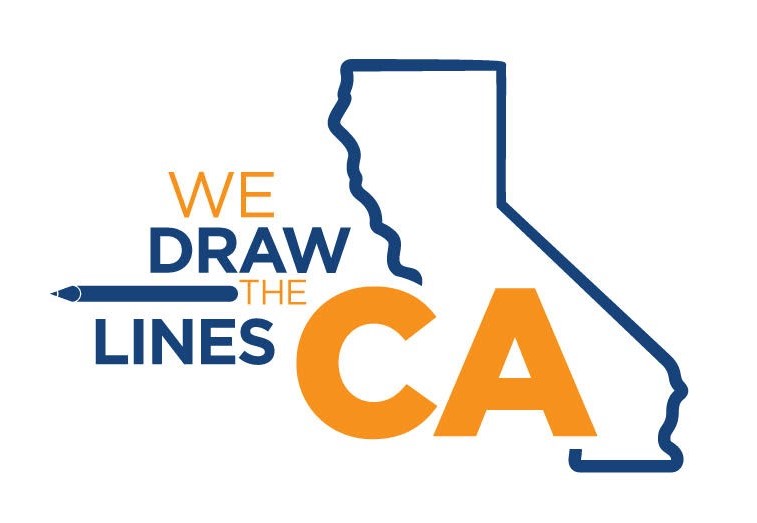
Welcome to 2010 Citizens Redistricting Commission (CRC) Summary Page. Below is a recap and timetable of the 2010 redistricting cycle, background on the 2010 Commissioners, and links to the 2010 CRC Final Report and Maps. [Note: To view comparisons of the 2010 CRC and 2020 CRC Final Maps see Map Viewer on the Data tab of this website.] The 2010 CRC website has been archived.
To access the 2010 CRC’s meeting records, handouts, videos, community input, public comment, draft and final maps, etc., the public has two options: the California State Archives, and the online website archives located with the WayBack Machine, digital archive of the World Wide Web launched by a private, non- profit firm in 2001.
CA State Archives
The California State Archives houses many documents and records related to the 2010 redistricting cycle. Below is a document outlining what is in and how to view the records housed with the State Archives.
The California State Archives frequently updates collection descriptions in its online catalog, Minerva, Please visit Minerva for the most complete, up-to-date inventory of these records ![]() .opens in a new window
.opens in a new window
To access the records, please contact the California State Archives.
1020 O Street
Sacramento CA 95814
Hours: 9:30-4:00, Monday-Friday
Email: archivesweb@sos.ca.gov
Phone: 916-653-2246
Note: Electronic records will require prior notification in order to prepare records for research
Brief listing of the 2010 Commission records with the State Archives:
Public Input Files. Public comments submitted in 2011 to the Commission by letter, email, or by other means regarding the Commission’s redistricting work. (3.5 cubic feet)
Meeting Files. Commission meetings held between February 2011 to January 2012. The files contain meeting announcements, correspondence, reports, roll calls, meeting handouts, submitted materials, draft maps, proposals, submitted over-size presentation items and maps, and draft minutes and agendas. (3.5 cubic feet)
Meeting Transcripts. Public hearings and business meetings held between February 2011 – August 2011. In addition to meetings of the full Commission, the Meeting Transcripts include meetings of the Legal Advisory Committee, Public Information Advisory Committee, Public Outreach Advisory Committee, Finance and Administration Committee, and Technical Advisory Committee. (9 cubic feet)
Legal Files. Contains legal documents submitted to the Commission, including certifications for the statewide Assembly, Senate, Board of Equalization and Congressional redistricting maps, invitations for bids, U.S. Dept. of Justice “Preclearance Submission” for Voting Rights Act (VRA) – Section 5 Counties (Kings, Merced, Yuba and Monterey), consultant reports, VRA attorney proposals, and documents related to the following State Supreme Court Cases: Vandermost v. Bowen (case nos. S196493 and S198387) and Radanovich v. Bowen (case no. S196852).. (2 cubic feet)
Accession 2020-005
State of California Citizens Redistricting Commission Final Report and Certified District Maps, 8/15/2011. (1 cubic foot)
Final Certified District Maps for Assembly, Board of Equalization, Congress and State Senate. (7 DVDs)
Meetings and Public Input Hearings. Video recordings of meetings held throughout California in 2011. (24 DVDs)
CCRC Media. Presentations, photographs, and press conference recordings. (6 DVDs)
Reports and Map Submissions. Suggested maps created by various organizations, such as the Mendocino Council of Governments Wine Country Interregional Partnership, San Joaquin County Citizens for Constitutional Redistricting (SJCCCR), Coalition of Asian Pacific Americans for Fair Redistricting (CAPAFR), and Chinese American Citizens Alliance (CACA), Greater San Gabriel Lodge. (11 DVDs)
WayBack Machine (https://archive.org/web/ ![]() opens in a new window)
opens in a new window)
To access the commission’s 2010 web archives type the 2010 website name (wedrawthelines.ca.gov) into the input box at the top of the home page and press enter.
This will open a web page with a calendar whereby one can select a time from which to view the 2010 website archives.
Background on 2010 Citizens Redistricting Commission
Commissioners were selected through a rigorous application and selection process administered by the California State Auditor. Eligible and interested individuals submitted an initial application and then a supplemental application package that included essays and letters of recommendation. Additionally, the State Auditor’s office conducted background investigations and an Applicant Review Panel was responsible for identifying 60 of the most qualified applicants—20 Democrats, 20 Republicans, and 20 who do not belong to either of those two parties—after reviewing applications, taking and considering public comments, reviewing background information, and conducting interviews in public meetings. As set out by law (CA Government Code §8252), each of the four legislative leaders has the opportunity to strike up to two names in each of the subpools to identify the final applicant pool. The law requires the State Auditor to conduct random drawing to select the first eight commissioners from the final applicant pool identified by the Legislature and those first eight commissioners are charged with selecting the final six members from the remaining applicants in the pool.
The first eight commissioners selected the remaining six members of the Commission. Together these members will form the full 14-member Commission. The first eight commissioners must conducted their business publicly in a series of meetings beginning November 30 and ending on December 15, and followed California’s open meeting law, the Bagley-Keene Open Meeting Act. They were charged with selecting two applicants from each of the subpools. Prior to making those additional selections of the final six members of the Commission, the first eight members chosen by the State Auditor’s Office were provided training on California’s diverse demographics and geography; the responsibilities of the Commission as set forth in the Voters FIRST Act; and the process for performing redistricting, including the use of computer software to draw district lines.
To emphasize the non-partisan nature of the Commission, the 2010 Commission decided to rotate leadership at each meeting during the line-drawing process, adhering to the stipulation in the California Constitution that the Chair and Vice Chair be from different parties. 2010 Commission staff created a random rotation schedule from the pool of Commissioners who volunteered to serve. The previous Vice Chair ascended to Chair, ensuring continuity.
Timeline of 2010 Commission
- The State Auditor adopts regulations implementing certain provisions of the Voters First Act. Further, the U.S. Department of Justice “preclears” the regulations1 on December 18, 2009.
- The Applicant Review Panel is randomly selected at 10:00 a.m. on Monday, November 16, 2009.
- The initial application period to apply to be on the commission begins on December 15, 2009 and continues through February 16, 2010. There were 30,000 applicants submitted by the public.
- The State Auditor completes a new rulemaking process.
- The required supplemental application period begins on February 17, 2010 and continues through April 19, 2010. Eligible applicants from the first phase are required to complete the supplemental application on-line to continue in the process.
- The Applicant Review Panel reviews and evaluates and narrows the applicant pool in a series of public meetings.
- The Applicant Review Panel invites 120 of the most qualified applicants to interview: 40 Democrats, 40 Republicans, and 40 not affiliated with either party to identify the final 60 applicants.
- The Applicant Review Panel submits the list of 60 of the most qualified applicants to the Legislature on September 29, 2010.
- Proposition 20 passes in November 2010 and adds responsibility of drawing Congressional lines.
- Legislature submits list of applicants remaining in the pool on November 12, 2010.
- State Auditor randomly selects the first eight commissioners on November 18, 2010.
- First eight commissioners select the remaining six members on December 15, 2010.
- Commissioner Elaine Kuo resigns Jan. 14, 2011. Commission selects Angelo Ancheta to replace her on Jan 28, 2011.
- Feb 2011 – June 2011 Commission holds 34 public input hearings and hears from 2700 speakers, makes 245 public appearances by commissioners, and receives over 40,000 public comments and submissions.
- March 8, 2011, the commission receives the for California from the Statewide Database.
- Mapping begins late May 2011 through July 2011.
- June 6, 2011, the commission releases its first draft maps.
- June 24 to July 28, 2011, commission releases visualizations for mapping so the public can follow the mapping process.
- Final Maps released for public review on July 28, 2011.
- Commission votes to adopt and certify the final maps Aug 15, 2011.
- September 29th, 2011, Radanovich v Bowen and Vandermost v. Bowen, challenging the validity of the Commission’s congressional and state Senate maps on the grounds the Commission improperly used race as the predominant factor when redrawing certain districts in violation of the California Constitution.
- Connerly v. State of California, filed October 4, 2011, challenging method of selecting members of the newly formed independent redistricting commission as violating the California Constitution in that it gave improper preferences to applicants based on race, ethnicity, and gender.
- State Supreme Court grants demurrer and dismisses the Connerly 16, 2011
- US DOJ grants on January 17, 2012.
S.DOJ preclearance (approval) was required by Section 5 of the Federal Voting Rights Act for in voting changes in covered jurisdictions, including for CA, the implementation of a citizens redistricting commission.
S. DOJ preclearance was required by Section 5 of the Federal Voting Rights Act. DOJ had to review and approve the final maps before they could be used.
2010 Commission Final Report and Maps
Resolutions | Cover Letter(PDF) | Final Report (PDF) | Appendix 1 (PDF) | Appendix 2 (PDF)| Appendix 3 (PDF)| Appendix 4(PDF) | Appendix 5 (PDF) | Appendix 6 (PDF)
2010 Commissioners and their biographies.
Note, the above will take the viewer to a sub-page where the 2010 commissioners and their bios can be found.
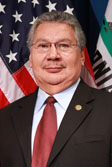
Gabino Aguirre
County: Ventura
City: Santa Paula
Dr. Gabino Aguirre was born to farmworker parents and spent his childhood following the crops cycling from Texas to Oregon, California and then Arizona. After graduating from high school in Arizona, he left his family to come to California. Shortly thereafter, he was conscripted into the army where he served as a technical specialist working with computers and weapons experimentation related to the Vietnam-era conflict. Following his service he enrolled in college and earned a Bachelor’s degree from UCLA, a Master in Education from USC, and a Ph.D. in Social Science/Comparative Education from UCLA. His career in education spanned 30 years and he retired as a high school principal in 2007. Dr. Aguirre has dedicated himself to community development and empowerment for over four decades and has founded and/or served as a board member on many community-based organizations. He has served on the Santa Paula City Council since his election in 2002. Commissioner Aguirre is registered with the Democratic Party and lives in the City of Santa Paula in Ventura County.
“On a political level, I’ve learned that both the equitable distribution of resources and who is at the table deciding on such distribution is at the heart of many of our social problems. Active participation must be planned for and facilitated, especially for those marginalized within current social socio-political structures. Broader participation will occur only when government is perceived as accessible and organized to serve the public interest and not stacked in favor of particular candidates or parties. Helping with this process is my fundamental concern with this Commission.”
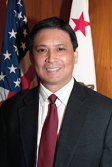
Angelo Ancheta
County: San Francisco
City: San Francisco
Angelo Ancheta is an attorney whose work in the nonprofit and academic sectors has focused on civil rights law, constitutional rights, appellate advocacy, and nonprofit management. He has taught at several leading law schools, including UCLA, Harvard, and NYU, and was most recently a clinical law professor at Santa Clara University. Before starting his academic career, Commissioner Ancheta was a legal services attorney and nonprofit executive director in both Northern and Southern California, specializing in immigrant rights and voting rights. He holds a bachelor’s degree and a law degree from UCLA, as well as master’s degrees from the Harvard Kennedy School of Government and Claremont Graduate University. Commissioner Ancheta is registered with the Democratic Party and lives in the City and County of San Francisco.
“The Commission has played a key role in defining the next decade’s opportunities for civic engagement for candidates seeking office as well as for voters and residents. Redistricting is a vitally important part of the democratic process, but it can be opaque to most citizens because it occurs every ten years, involves specialized procedures, and has, in the past, been the province of the legislature. Moving the process to the State’s citizenry marks a significant change in power, but it is also an important shift in civic obligation that requires active participation and dedication from the voters.”
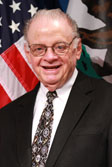
Vincent P. Barabba
County: Santa Cruz
City: Capitola
Vince Barabba founded Market Insight Corporation in 2003. Market Insight Corporation provides real time online shopper preferences to help companies better reach their target audiences. He provides guidance to the enterprise as it tracks shopper preferences through the use of a consumer Web site calleded MyProductAdvisor.com. His career includes two stints as director of the U.S. Census Bureau, with appointments from both Presidents Nixon and Ford and later asked by President Carter to direct the conduct of the 1980 Census. Mr. Barabba is a past president and a fellow of the American Statistical Association and served as Chairman of the National Research Council Panel to review the statistical program of the National Center for Education Statistics.
He is the co-author of Business Strategies for a Messy World, (2013 Palgrave Macmillan). The Decision Loom (2011 Triarchy Press), Surviving Transformation (2004 Oxford University Press) and Meeting of the Minds (1995 Harvard Business School Press). He is the co-author of Hearing the Voice of the Market (1991 Harvard Business School Press) and The 1980 Census: Policy Making Amid Turbulence (1983 Lexington Books).
Mr. Barabba received a Bachelor’s degree in Business Administration from Woodbury Business College, a Bachelor’s degree in Marketing from California State University, Northridge and an MBA from UCLA. He was also awarded an Honorary Doctorate of Laws degree from the Trustees of the California State University. Commissioner Barabba is registered with the Republican party and lives in the City of Capitola in Santa Cruz County.
“I am excited about the opportunity to bring [my] experience and knowledge to help achieve the Redistricting Commission’s objective of creating legislative districts that will improve the proximity of citizens and the legislators who represent them, thereby enhancing their ability to communicate and interact in a constructive manner.”
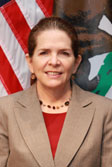
Maria Blanco
County: Alameda
City: Berkeley
María Blanco is Executive Director of the University of California Immigrant Legal Services Center. Launched in November 2014, the center provides the free legal services undocumented students need in order to achieve their educational goals and reach their full potential on nine UC campuses. Before she assumed her current position, she was Vice President of Civic Engagement at the California Community Foundation in Los Angeles. Previously, Ms. Blanco served as Executive Director of the Chief Justice Earl Warren Institute on Race, Ethnicity and Diversity at the University of California, Berkeley, School of Law, and before that as Executive Director of the Lawyers’ Committee for Civil Rights of the San Francisco Bay Area. From 1998 to 2003, she was counsel for the Mexican American Legal Defense and Educational Fund. She has served on the Public Policy Institute of California’s Board of Directors since 2010. She earned both her undergraduate and law degrees from UC Berkeley. Commissioner Blanco is registered with the Democratic Party and lives in the City of Berkeley in Alameda County.
“I am honored and excited to serve on California’s first Citizens Redistricting Commission. My hope is that the commission will help set the tone for open and collective problem solving in California.”
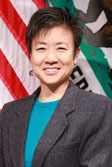
Cynthia Dai
County: San Francisco
City: San Francisco
Cynthia Dai is a native Californian, second-generation Asian-American and has worked and lived in several countries around the world. As an experienced entrepreneur and CEO of strategy firm Dainamic Consulting, Inc., Ms. Dai has advised growth organizations and social ventures for 20+ years and often serves as an interim executive of both early-stage and public ventures. Ms. Dai has an MBA from the Stanford Graduate School of Business and a B.S. in Electrical Engineering and Computer Science with honors from UC Berkeley. She has taught Leadership and Entrepreneurship courses at UC Berkeley’s Sutardja Center for Entrepreneurship and Technology; launched the Tsinghua-Berkeley Global Technology Entrepreneurship Program in Beijing, China; and is a frequent guest speaker on social entrepreneurship at international conferences. She is active in the community as a volunteer and currently serves as a Board member of Santa Clara University’s Miller Center for Social Entrepreneurship. Commissioner Dai is registered with the Democratic Party and lives in the City and County of San Francisco.
“I am motivated to serve on the Commission for three reasons: 1) I want to be part of a solution that restores faith in the electoral process and improves the effectiveness of state government; 2) I’d like to give the underrepresented a voice; 3) I have the experience and skills to be a Commissioner who can make a difference.”
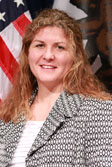
Michelle R. DiGuilio
County: San Joaquin
City: Stockton
Michelle DiGuilio, a native Californian, has spent the past eighteen years working with numerous agencies in the Central Valley. Ms. DiGuilio has assisted non-profit, private, and public organizations in their strategic planning efforts, board development, and in streamlining internal policies. She has facilitated regional discussions with groups throughout the Central Valley; served as an administrator for a California Council for the Humanities project and as a training coordinator at the University of the Pacific. During the Commission’s early years, Ms. DiGuilio was a stay-at-home mother by choice, allowing her to participate in family and community activities. Currently she is a Project Manager for the City of Stockton’s Fire Department. She earned a Bachelor’s degree from the University of California, San Diego and a Master’s degree in Community Planning (Urban and Regional) from the University of Cincinnati. Commissioner DiGuilio is registered as No Party Preference and lives in the City of Stockton in San Joaquin County.
“With the Citizens Redistricting Commission, the opportunity to be a part of the redistricting process is a uniquely democratic undertaking, not only for the duties of drawing district boundaries but, more importantly, to ensure that California citizens have representation through the most fair and equitable manner possible.”
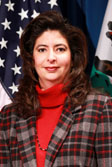
Jodie Filkins Webber
County: Riverside
City: Norco
Jodie Filkins Webber is a self-employed attorney, practicing law in Orange County. Ms. Filkins Webber is an insurance litigation defense attorney representing various insurance companies, adjusting companies and self-insured employers in defense of claims for workers’ compensation benefits and personal injury. She also specialized in providing legal opinions on various insurance coverage issues. Ms. Filkins Webber practices before all Southern California Courts and Workers Compensation Appeals Boards. Ms. Filkins Webber received a Bachelor’s degree from UC Riverside and a law degree from Whittier Law School, formerly Whitter College School of Law. Ms. Filkins Webber has lived throughout Southern California including Los Angeles and Lake Forest. Commissioner Filkins Webber is registered with the Republican party and lives in the City of Norco in Riverside County.
“I am interested in serving on the Citizens Redistricting Commission to serve our citizenry and State to insure adequate representation of each citizen to meet the purpose of the Proposition and allow for full participation of independent voters in the election process.”
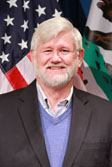
Stanley Forbes
County: Yolo
City: Esparto
Stanley Forbes is a co-owner of Avid Reader, an independent retail bookstore. There he selects merchandise, sells and markets books, provides customer service and attends to financial matters. Mr. Forbes also has spent the last 32 years operating a family ranch, managing crop selection, market research, financial planning, equipment operation, irrigation, chemical and air quality regulation compliance, pruning and raking almonds. Mr. Forbes received a Bachelor’s degree from the University of Southern California, a Master’s degree from UCLA, and a Law Degree from Vanderbilt University. Mr. Forbes is registered as No Party Preference and lives in Esparto in Yolo County.
“I applied to serve on the Citizens Redistricting Commission out of a deep concern that unless reformed, California may be unable to effectively address the problems it faces as well as maximize the opportunities that will enable the people of California to pursue and fulfill their potential.”
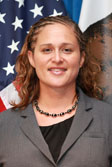
Connie Malloy
County: Los Angeles
City: Pasadena
Connie Archbold Malloy serves as Executive Director of the Panta Rhea Foundation (PRF), a private foundation devoted to building a just and sustainable world. The Foundation advises and partners with individual donors and other charitable entities on grantmaking strategies.
She previously served as Portfolio Director at The James Irvine Foundation’s Los Angeles office. During her seven-year tenure she deployed over $200 million in grants to support economic and workforce development, voter and civic engagement, Pay for Success, and the foundation’s annual Leadership Awards.
Ms. Malloy also serves on the national Advisory Board of the Funders Committee for Civic Participation and on the local board of Southern California Grantmakers. She earned her master’s degree in urban planning from the University of California, Berkeley, and a bachelor’s degree from La Sierra University in Riverside, CA. Commissioner Malloy is registered as No Party Preference and lives in the City of Pasadena in Los Angeles County.
“I’m so proud of the work we’ve done as an independent Commission to ensure fair representation for all Californians. Voters should pick politicians, not the other way around. We put the power of redistricting back in the hands of everyday people.”
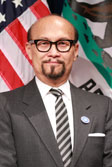
Lilbert “Gil” R. Ontai
County: San Diego
City: San Diego
Dr. Gil Ontai is a faculty member and past campus director at Springfield College. He is also a practicing architect and urban planner. He served as a planning commissioner for the city of San Diego and as board director for its center city redevelopment. Over the past 30 years, he has been active in organizations such as the Neighborhood House Social Services, Union of Pan Asian Communities, Samahan Pacific Islander Health Disparity Study, Pacific American Cultural Center, American Red Cross, Girls Scouts, San Diego Chamber of Commerce, University of California San Diego Chancellor’s Associates, and American Institutes of Architects. He is currently a director on Global ARC, an environmental organization and a member of academic/research organizations. Dr. Ontai graduated with a Bachelor’s degree from the University of Hawaii, a Master’s degree from Washington University in St. Louis, and a doctorate in adult education from Capella University. Commissioner Ontai is registered with the Republican party and lives in the City and County of San Diego.
“Perhaps no time in our history is redistricting so important in strengthening our representative democracy. California, with its rich diversity and heritage in civic reform, has led the way in demonstrating to the nation that ordinary, responsible citizens can play a powerful role in shaping fair district maps. I am proud to be a member of the California Citizens Redistricting Commission and to play a role in improving public trust in our electoral system.”
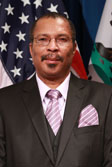
M. Andre Parvenu
County: Los Angeles
City: Culver City
M. Andre Parvenu is a geographer, urban planner, community outreach specialist, and a former Zoning Analyst with the Los Angeles Department of City Planning. Mr. Parvenu presently serves as a Planning Consultant for several Neighborhood Councils in the City of Los Angeles. Prior experiences include Senior Communications Officer for the Los Angeles County Metropolitan Transportation Authority and Transportation Planning Manager for the Los Angeles Department of Transportation. Mr. Parvenu has also worked as a Community Partnership Specialist with the United States Census Bureau, a Crisis Relocation Planner with the Federal Emergency Management Agency, and as Migration Specialist with the United Nations High Commissioner for Refugees in Central America, and the Belize Ministry of Home Affairs. Mr. Parvenu received a Master of Science Degree in Geography from the University of Wisconsin-Madison, and has completed undergraduate work in geography, cartography, and urban studies at Morgan State University in Baltimore, Maryland and at Howard University in Washington, D.C. Commissioner Parvenu is registered as No Party Preference and lives in Culver City in Los Angeles County.
“I am indeed privileged and honored to serve on the California Citizens Redistricting Commission. I view this as a unique opportunity to utilize all of my skills in the areas of geography, planning and community outreach to provide a valuable service to the people of California. I represent the underrepresented. It is important to draw lines and district boundaries that will work favorably and serve in the best interest of every citizen in this State. I look forward to this historic opportunity to serve.”
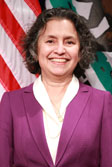
Jeanne Raya
County: Los Angeles
City: San Gabriel
Jeanne Raya is employed by the John L Raya Insurance Agency, a family-owned business established in San Gabriel in 1960. Currently, she is an Agency Principal, responsible for marketing commercial insurance, risk management consulting, and managing external relationships with carriers and regulatory agencies. Under her leadership, the Agency has developed expertise working with non-profit organizations and medical facilities. Ms. Raya received a Bachelor’s Degree and Teaching Credentials from the University of Southern California, and a Law Degree from UC Davis. She has served as staff counsel for the Board of Equalization and the Public Employment Relations Board. In private law practice for 14 years, Ms. Raya specialized in Family Law and Probate. She served as President of the California La Raza Lawyers Association, as a member of the Committee of Bar Examiners and as President of the San Gabriel Chamber of Commerce, Ms. Raya is a registered Democrat and lives in the City of San Gabriel in Los Angeles County.
“I view serving on the Commission as a unique opportunity as a citizen to help shape California’s political future. I believe that our political system is capable of evolving and can incorporate the demographic, technological and economic changes that have shaped California since the last redistricting. We must do all we can to insure that citizens maintain faith in representative democracy. Drawing voting boundaries is a fundamental aspect of the structure of democracy and I am honored to be part of a process that can reassure voters they do have a voice.”
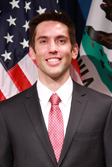
Michael Ward
County: Orange
City: Anaheim
Dr. Michael Ward is both an ACA and CCA member of the Doctor of Chiropractic and Sports Medicine in Fullerton since 2005. He specializes in myoneural medicine being distinctively designated as a Registered Trigenics Physician. Dr. Ward also teaches anatomy and physiology at Marston Polygraph Academy and is an APA and CAPE certified polygrapher. Dr. Ward was a Federal Agent in charge of international criminal, narcotics and counter-intelligence investigations and was part of the response team to the 9/11 terrorist attack on the Pentagon. He also directed the establishment and daily operations of a Global Threat Watch Headquarters for the Department of Defense. Dr. Ward is a proud military veteran having served as a decorated officer with the U.S. Air Force. Dr. Ward is an honors graduate from California State University Fullerton with a Bachelors degree in Communications. He later achieved a Doctorate of Chiropractic Medicine with Honors from the Southern California University of Health Sciences. Commissioner Ward is registered with the Republican Party and lives in the City of Anaheim in Orange County.
“No place is as culturally, geographically or politically rich as California. Securing that every citizen of this Golden state has an equal and honest chance to have their voices heard is a great calling and one that I have a genuine and passionate interest in. Ensuring parity amongst all citizens who participate in the electoral process is a preeminent opportunity to safeguard continued achievement, success and prosperity for all Californians.”
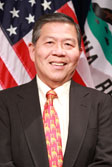
Peter Yao
County: Los Angeles
City: Claremont
Peter Yao served two terms on the City Council for the City of Claremont ending in 2010. He was the city Mayor in 2006 and 2007. During his tenure, the City completed a consensus based city General Plan which the City adheres as guideline for long term economic development and for budget priorities. He advocated for the completion of the first affordable housing in this upscale community in the pursuit of economic diversity. Mr. Yao began his professional career as a circuit designer. His final position with Raytheon Corporation was the Director of Engineering. He retired in 2005. Mr. Yao received a BS Electrical Engineering from UC Berkeley. He received a MSEE from State University of New York at Buffalo, a MBA from California State University at Fullerton and a Masters in Management from the Claremont Graduate University’s Drucker School of Management. Commissioner Yao is registered with the Republican Party and lives in the City of Claremont in Los Angeles County.
“I look forward to being a part of this creative team that addresses the problem of representational fairness. This is an opportunity to redraw district lines to maximize political competitiveness. I want to remove the systematic bias on the selection of political candidates. I want to assure citizens that their participation in the democratic process in California is meaningful.”
